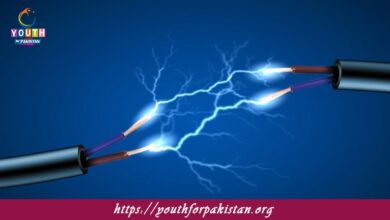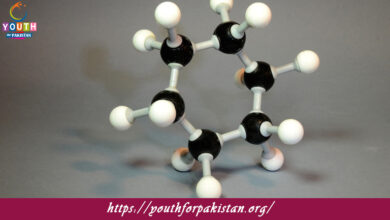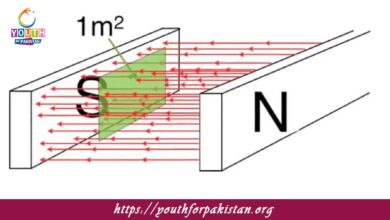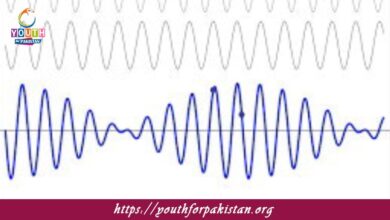Isomerism MDCAT MCQs with Answers

Welcome to the Isomerism MDCAT MCQs with Answers. In this post, we have shared Isomerism Multiple Choice Questions and Answers for PMC MDCAT 2024. Each question in MDCAT Chemistry offers a chance to enhance your knowledge regarding Isomerism MCQs in this MDCAT Online Test.
What type of isomerism is exhibited by butane and isobutane?
a) Structural isomerism
b) Geometric isomerism
c) Optical isomerism
d) Conformational isomerism
Which type of isomerism occurs when compounds have the same molecular formula but different connectivity of atoms?
a) Structural isomerism
b) Geometric isomerism
c) Optical isomerism
d) Tautomeric isomerism
Geometric isomerism is best observed in which type of compounds?
a) Alkanes
b) Alkenes
c) Alkynes
d) Aromatic hydrocarbons
Which of the following compounds shows optical isomerism?
a) Ethane
b) Butene
c) Lactic acid
d) Propane
What is the term for isomers that differ in the spatial arrangement of groups around a double bond?
a) Structural isomers
b) Geometric isomers
c) Optical isomers
d) Tautomers
The presence of a chiral center is a characteristic of which type of isomerism?
a) Geometric isomerism
b) Optical isomerism
c) Structural isomerism
d) Conformational isomerism
Which type of isomerism is exhibited by 1,2-dichloroethene?
a) Optical isomerism
b) Geometric isomerism
c) Structural isomerism
d) Tautomeric isomerism
What is the main difference between enantiomers?
a) Their physical properties
b) Their chemical reactivity
c) Their spatial arrangement
d) Their connectivity of atoms
Which of the following is an example of structural isomers?
a) Cis- and trans-butene
b) (R)- and (S)-lactic acid
c) Butane and isobutane
d) 1-Butene and 2-Butene
What type of isomerism is shown by 1,2-dibromoethane and 1,3-dibromoethane?
a) Structural isomerism
b) Geometric isomerism
c) Optical isomerism
d) Conformational isomerism
Which of the following is a characteristic feature of geometric isomers?
a) Different connectivity of atoms
b) Different spatial arrangements around a double bond
c) Different physical properties
d) Different types of bonding
Which compound has cis- and trans- isomers?
a) Methane
b) 1,2-Dichloroethane
c) 2-Butene
d) Propane
What type of isomerism is observed in compounds with the same molecular formula but different functional groups?
a) Geometric isomerism
b) Structural isomerism
c) Optical isomerism
d) Tautomeric isomerism
Which of the following is true for enantiomers?
a) They are superimposable on each other.
b) They are non-superimposable mirror images.
c) They have different connectivity of atoms.
d) They have different physical properties.
Which type of isomerism is exemplified by compounds having different positions of substituents on a ring?
a) Structural isomerism
b) Geometric isomerism
c) Optical isomerism
d) Positional isomerism
Which of the following pairs are geometric isomers?
a) Butane and isobutane
b) 1-Butene and 2-Butene
c) Ethylene and acetylene
d) Ethanol and dimethyl ether
The term “chiral center” refers to:
a) A carbon atom with four different groups attached
b) A carbon atom with a double bond
c) A carbon atom with a triple bond
d) A carbon atom in a ring structure
Which isomerism is associated with compounds that can interconvert between different forms due to the movement of hydrogen and double bonds?
a) Optical isomerism
b) Geometric isomerism
c) Tautomeric isomerism
d) Structural isomerism
Which of the following is NOT an example of geometric isomerism?
a) Cis-2-butene and trans-2-butene
b) 1,2-Dichloropropane and 1,3-Dichloropropane
c) Lactic acid and 2-Hydroxypropanoic acid
d) Maleic acid and fumaric acid
Which term describes isomers that have different arrangements of atoms but the same connectivity?
a) Conformational isomers
b) Structural isomers
c) Optical isomers
d) Geometric isomers
Which type of isomerism is exhibited by compounds that differ in their spatial orientation around a single bond?
a) Geometric isomerism
b) Optical isomerism
c) Conformational isomerism
d) Structural isomerism
Which compound is an example of a molecule with optical isomerism?
a) 2-Butene
b) Propene
c) 3-Hydroxybutanoic acid
d) 1,2-Dichloroethene
The term “cis-” and “trans-” is used to describe which type of isomerism?
a) Optical isomerism
b) Structural isomerism
c) Geometric isomerism
d) Tautomeric isomerism
Which of the following is an example of tautomerism?
a) Cis- and trans-2-butene
b) Lactic acid and acetaldehyde
c) Methane and ethane
d) Benzene and cyclohexane
Which type of isomerism involves compounds with the same molecular formula but different spatial arrangements around a chiral center?
a) Geometric isomerism
b) Optical isomerism
c) Structural isomerism
d) Conformational isomerism
What type of isomerism occurs when two compounds have the same molecular formula but different functional groups?
a) Structural isomerism
b) Geometric isomerism
c) Optical isomerism
d) Conformational isomerism
Which of the following pairs are structural isomers?
a) Butane and isobutane
b) 1,2-Dichloroethane and 1,3-Dichloroethane
c) cis- and trans-2-butene
d) (R)- and (S)-lactic acid
What type of isomerism is exhibited by 2-methylpentane and 3-methylpentane?
a) Geometric isomerism
b) Structural isomerism
c) Optical isomerism
d) Tautomeric isomerism
Which of the following is true for enantiomers?
a) They have identical physical and chemical properties.
b) They have different connectivity of atoms.
c) They are non-superimposable mirror images of each other.
d) They have different molecular formulas.
Which isomerism involves differences in the position of substituents on a ring structure?
a) Structural isomerism
b) Geometric isomerism
c) Optical isomerism
d) Positional isomerism
Which of the following pairs of compounds is an example of geometric isomers?
a) 1-Butene and 2-Butene
b) Ethane and ethene
c) Propane and propene
d) Methane and ethane
What type of isomerism is seen in compounds with different arrangements of atoms due to the presence of different functional groups?
a) Optical isomerism
b) Tautomeric isomerism
c) Structural isomerism
d) Conformational isomerism
Which of the following compounds shows optical activity?
a) 2-Butene
b) Propanol
c) Ethanol
d) Methane
What is the term for isomers that differ in their spatial arrangement due to the rotation around a single bond?
a) Geometric isomers
b) Optical isomers
c) Conformational isomers
d) Structural isomers
Which type of isomerism is shown by compounds with the same molecular formula but different functional groups?
a) Geometric isomerism
b) Structural isomerism
c) Optical isomerism
d) Conformational isomerism
Which of the following is an example of optical isomerism?
a) 1-Butene and 2-Butene
b) 2-Methylbutane and 3-Methylbutane
c) (R)-2-Butanol and (S)-2-Butanol
d) Propene and Propane
Which type of isomerism is exhibited by two compounds with the same molecular formula but different connectivity of atoms?
a) Geometric isomerism
b) Structural isomerism
c) Optical isomerism
d) Conformational isomerism
The term “chiral” refers to molecules that:
a) Have multiple double bonds
b) Can rotate plane-polarized light
c) Are superimposable on their mirror images
d) Have the same connectivity of atoms
Which of the following is NOT an example of structural isomerism?
a) 1-Butene and 2-Butene
b) cis-2-Butene and trans-2-Butene
c) Butane and isobutane
d) Ethanol and dimethyl ether
Which type of isomerism is seen when compounds have the same molecular formula but differ in the spatial arrangement of atoms or groups around a double bond?
a) Optical isomerism
b) Geometric isomerism
c) Structural isomerism
d) Tautomeric isomerism
If you are interested to enhance your knowledge regarding Physics, Chemistry, Computer, and Biology please click on the link of each category, you will be redirected to dedicated website for each category.





